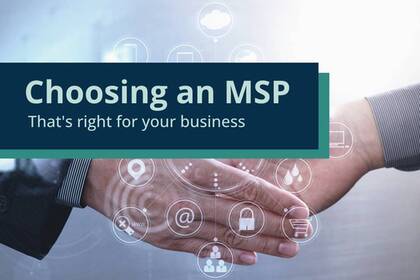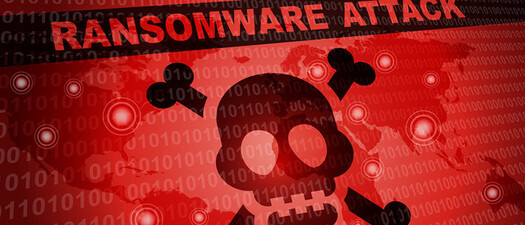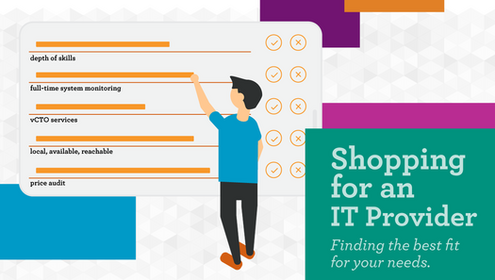
Introduction
The Payment Card Industry Data Security Standard (PCI DSS) and the Health Insurance Portability and Accountability Act (HIPAA) are regulations that govern the security and privacy of sensitive information. The PCI DSS applies to all organizations that handle credit card data, while HIPAA applies to healthcare providers, insurers, and related entities that handle protected health information (PHI). Failure to comply with these regulations can result in significant fines, legal action, and damage to a company's reputation. Managed Service Providers (MSPs) can help businesses with PCI and HIPAA compliance by providing expertise, tools, and support to meet these regulatory requirements.
How can a Managed Service Provider help with PCI compliance?
PCI DSS is a set of security standards established by major credit card companies to protect against credit card fraud. Any business that handles credit card data is required to comply with these standards. Achieving and maintaining compliance can be complex and time-consuming, especially for small and medium-sized businesses that may not have the necessary resources or expertise. MSPs can help businesses with PCI compliance in the following ways:
- Conducting assessments: MSPs can conduct a thorough assessment of a business's current PCI compliance status to identify gaps and weaknesses in their security posture. Based on the results of the assessment, the MSP can provide recommendations and a roadmap for achieving compliance.
- Implementing security controls: MSPs can implement the necessary security controls required to comply with the PCI DSS. These controls may include firewalls, intrusion detection and prevention systems, encryption, access controls, and monitoring tools.
- Maintaining compliance: Achieving compliance is only the first step. MSPs can provide ongoing monitoring and support to ensure that businesses maintain compliance with the PCI DSS. This includes conducting regular security assessments, monitoring system logs, and updating security controls as needed.
- Managing vendors: Many businesses rely on third-party vendors for payment processing and other services that involve credit card data. MSPs can help manage these vendors to ensure that they are also PCI compliant and that they meet the necessary security standards.
- Incident response: Despite the best efforts to prevent security breaches, incidents can still occur. MSPs can help businesses develop and implement an incident response plan to minimize the impact of any security breaches and to ensure compliance with reporting requirements.
Why is PCI compliance important?
PCI compliance is essential for any business that handles credit card data. Failure to comply with the PCI DSS can result in significant fines, legal action, and damage to a company's reputation. In addition, businesses that are not compliant may be at greater risk of security breaches, which can lead to data loss, theft, and other malicious activities.
How can a Managed Service Provider help with HIPAA compliance?
HIPAA is a federal regulation that governs the security and privacy of protected health information (PHI). Any healthcare provider, insurer, or other related entity that handles PHI is required to comply with HIPAA regulations. Achieving and maintaining HIPAA compliance can be challenging, especially for small and medium-sized healthcare organizations that may not have the necessary resources or expertise. MSPs can help businesses with HIPAA compliance in the following ways:
- Conducting risk assessments: MSPs can conduct a thorough risk assessment to identify potential security risks and vulnerabilities
- Developing policies and procedures: MSPs can help businesses develop policies and procedures that address HIPAA requirements, such as the Privacy Rule, Security Rule, and Breach Notification Rule. These policies and procedures can help businesses establish a framework for maintaining compliance.
- Implementing security controls: MSPs can implement the necessary security controls required to comply with HIPAA regulations. These controls may include access controls, encryption, monitoring tools, and disaster recovery solutions.
- Providing training and awareness: HIPAA compliance requires that all employees be trained on the policies and procedures related to PHI. MSPs can provide training and awareness programs to ensure that employees understand their roles and responsibilities in maintaining compliance.
- Managing vendors: Many healthcare organizations rely on third-party vendors for services that involve PHI. MSPs can help manage these vendors to ensure that they are also HIPAA compliant and that they meet the necessary security standards.
- Incident response: Despite the best efforts to prevent security breaches, incidents can still occur. MSPs can help businesses develop and implement an incident response plan to minimize the impact of any security breaches and to ensure compliance with reporting requirements.
Why is HIPAA compliance important?
HIPAA compliance is essential for any healthcare organization that handles PHI. Failure to comply with HIPAA regulations can result in significant fines, legal action, and damage to a company's reputation. In addition, businesses that are not compliant may be at greater risk of security breaches, which can lead to data loss, theft, and other malicious activities.
Conclusion
PCI and HIPAA compliance are critical for any business that handles credit card data or PHI. Achieving and maintaining compliance can be challenging, especially for small and medium-sized businesses that may not have the necessary resources or expertise. MSPs can help businesses meet these regulatory requirements by providing expertise, tools, and support. MSPs can conduct assessments, implement security controls, provide ongoing monitoring and support, manage vendors, and develop incident response plans. Compliance with PCI and HIPAA regulations is essential to protect against security breaches, avoid fines and legal action, and maintain the trust of customers and patients.





